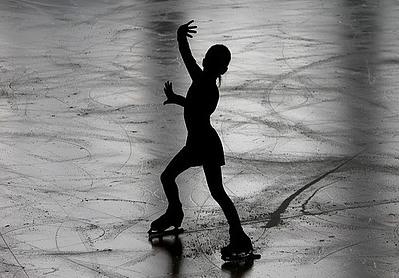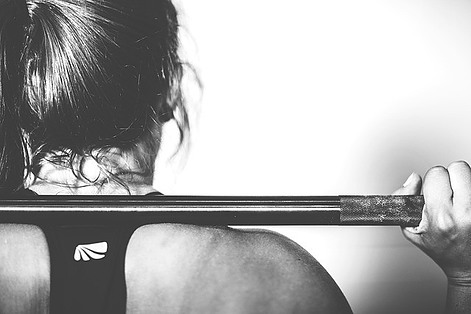
Why does lack of sleep affect your body performance?
In the last couple of articles, we have explored how the impacts of lack of sleep can be detrimental to your overall health and especially to your brain health. We all know first-hand the difference in our bodies between a good night’s sleep compared to a restless night. Just one subpar sleep can leave you feeling more sensitive or easily irritated, forgetful and unmotivated for the day. Now that we know how the brain is affected by sleep (or lack thereof), we can move on to the effects it has on our bodies. Let’s ask ourselves: why does lack of sleep affect your body performance?
Let’s jump into it: we know from our earlier articles — and probably from third-grade health class — that we need between 7-9 hours of sleep every night. You may not know, however, that teenagers (ages 12-18) and athletes need closer to 10 hours every night. Anyone not meeting this threshold may notice that their reflexes and reaction time are less sharp, and experience impaired decision-making skills, all of which risk injury — in every person, but especially for individuals who are athletes or who have active professions.
Long-term sleep deprivation can affect a wide variety of body functions
Here’s my crash course on the bodily effects of chronic sleep loss:
Immune system:
Your body uses your sleeping time to produce antibodies and cytokines, which fight infections from viruses and bacteria. The less time you sleep, the less time your body has to create these substances, which leaves you more vulnerable to illness and will extend your recovery time. Certain cytokines also help you sleep, so the less you sleep, it becomes harder and harder to get to sleep — a vicious cycle.
Digestive system
Sleep deprivation is one of the factors that can cause weight gain
and obesity. Sleep effects the levels of two hormones, leptin — which
tells your brain that you’re full — and ghrelin — which is an appetite
stimulant. A lack of sleep can result in more ghrelin and less leptin,
which is reflected in the “midnight snack” or other late-night eating.
This behavior, combined with a lack of exercise (because who wants to go
to the gym when they’re exhausted?), can lead to significant weight
gain. Sleep deprivation also causes your body to release less insulin
after you eat, a disruption that can lead to diabetes mellitus.
Respiratory system
The relationship between sleep and the respiratory system goes both ways. Obstructive sleep apnea (OSA), a nighttime respiratory disorder, interrupts your sleep and lowers sleep quality. Waking up frequently throughout the night causes sleep deprivation, which leaves you more vulnerable to respiratory infections (for the reasons mentioned above) like the common cold and flu. Sleep deprivation can also make existing respiratory diseases, such as asthma and chronic lung illness, worse.
Endocrine system
The endocrine system is responsible for our hormones, which allow our
bodies to perform crucial functions like growth and reproduction, and
our body needs sleep to operate it. For testosterone production, for
example, you need at least 3 hours of uninterrupted sleep, which is
about the time of your first R.E.M. episode. Sleep effects growth
hormone production, especially in children and adolescents. Even after
we’re done growing, the growth hormone helps our body heal tissues and
build muscle mass. The pituitary gland releases growth hormone
throughout each day, but adequate sleep and exercise also help the
release of this hormone.
Cardiovascular system
Chronic sleep loss effects your heart and blood vessel health by disrupting processes that keep those systems healthy, affecting blood sugar levels, blood pressure, and inflammation. Sleep is also crucial to our body’s ability to repair tissues in our heart and blood vessels. A lack of sleep can lead to cardiovascular disease, which may go as far as increasing a risk of heart attack and stroke.

How Does Sleep Affect Athletic Performance?
Athletes are some people who are most likely to suffer from sleep deprivation, due to the busy nature of their schedules, but they are also the most likely to suffer negative effects of sleep loss. Many athletes, especially high performance ones, already struggle with mental health, eating disorders, physical injury, and illness without having to account for the increased risks that accompany sleep loss.
We have already discussed in length the effects sleep loss has on the brain, including impaired reflexes and decision-making. Knowing these effects, we can see how sleep loss frequently leads to injury in athletes, as most sports involve making last-minute decisions and reacting to other people and outside factors quickly. In addition, because lack of sleep effects the ability to concentrate and learn new information, there is an increased likelihood of repeated injury due to an inability to process important info and learn from previous mistakes. Once these injuries occur, there is an increased risk of infection and longer recovery time thanks to the effects sleep loss has on the immune and endocrine systems.
Beyond the risk of injury, sleep deprivation also effects an athlete’s performance. I, for one, know that I can’t move as quickly when I’m sleepy. How is a tired person meant to make a split-second decision about where to pass the ball, or focus on important details like extended fingertips during a performance?

To sum up the Effects of Sleep Deprivation:
Short-term effects:
Sleepiness
Impaired decision-making skills
Decreased alertness
More stress
Long term effects:
Obesity
Heart disease
Diabetes
Stroke
Cancer
Weakened Immune system
And the list goes on….
Though I know that this article may not influence you, I can imagine that many of you reading right now have an achy feeling in their shoulders or a cold or a foggy feeling to their head, all because of your lack of sleep. The only thing that can fix those issues for good is a change to sleep routine, and finding the right sleep products and methods that work for you (or consult your Dr if you have any serious sleep conditions like Sleep Apnea). But I hope knowing more about where your troubles stem from helps you to understand why you feel this way, and — hopefully — convinces you to take a hard look at your own nighttime routine and make some changes.
And it isn’t always that easy — trust me, I get it. If you want to hear some real stories from even realer human beings about their life and sleep routines, stay tuned for our sleep blogs, coming soon!
Please write a comment below of what physical symptoms you can feel from a poor night’s sleep- I’d love to hear about it!

